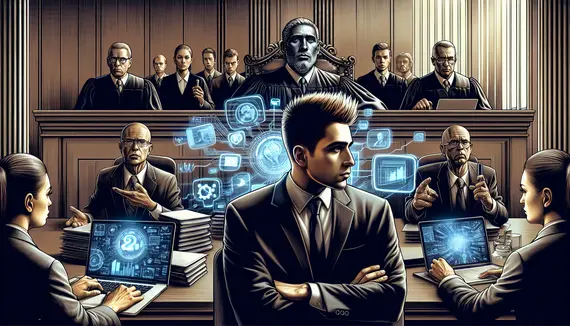
Apple's Bold Legal Move: The Case against a YouTube Star
In an era where technology news and updates proliferate faster than ever, few incidents capture attention quite like a showdown between a tech giant and a social media influencer. Recently, Apple made headlines by filing a lawsuit against Jon Prosser, a popular YouTuber known for his in-depth tech reviews and leaks, after he allegedly divulged sensitive information about their upcoming iOS 26.
The Heart of the Issue
Apple's decision to pursue legal action was prompted by Prosser's unauthorized release of critical security features planned for iOS 26. This disclosure, according to Apple, threatened not only their proprietary information but also the security of millions of users who rely on Apple's ecosystem for protection in an increasingly digital world.
The tech community was abuzz when Prosser, who runs a YouTube channel focused on technology insights, shared details that were meant to be under wraps until Apple's official announcement. Apple, known for its stringent security measures and secrecy about unreleased products, considered this a direct infringement of their intellectual property rights.
What Caused Apple's Reaction?
Apple's response can be attributed to several factors:
- Protection of Intellectual Property: Companies like Apple invest heavily in R&D to maintain their competitive edge. Leaks undermine years of effort and can significantly impact market strategies.
- User Security: Apple has built its brand around robust user privacy and security measures. Early leaks of security features might jeopardize the effectiveness of these defenses.
- Market Dynamics: Revealing new features prematurely can affect stock prices, investor confidence, and sales figures for current models.
Prosser's Side of the Story
From Prosser’s standpoint, sharing insights about upcoming tech features is part of his role as a technology commentator. His subscribers expect the latest insights and information, even if it involves new releases, which makes his content both relevant and highly anticipated. However, the fine line between keeping the audience informed and infringing upon a corporation's trade secrets is where the controversy lies.
In his defense, Prosser might argue that his goal was purely journalistic, aiming to inform the public rather than cause any harm to Apple’s business ventures. Despite the legal implications, the leak underscores the growing challenge faced by content creators in balancing exclusive insights with legal boundaries.
Legal Framework and Implications
The clash between Apple and Prosser highlights critical points about intellectual property law in the digital age. Legal protections exist to safeguard companies' innovative advancements, but as digital content creation scales, so does the complexity of enforcement.
Several legal aspects come into play:
- Nondisclosure Agreements (NDAs): Such agreements are common in the tech industry to protect sensitive information. Violation can result in severe penalties.
- Trade Secret Laws: Designed to prevent unauthorized use of proprietary information, these laws are central to Apple's claims.
- Freedom of Speech: While content creators argue for the right to free expression, they must navigate within the confines of existing legal constructs.
Industry Reactions
Apple's suit has drawn varying opinions from industry experts and the public alike. Some suggest that companies need to embrace transparency and adapt to the realities of today's fast-paced information environment. By locking down information too tightly, they risk alienating tech enthusiasts and the community that supports them.
Others support Apple’s strict stance on information protection, arguing that the integrity of future releases is crucial for innovation. In their view, premature leaks not only spoil the element of surprise but also allow competitors to adapt and mimic features that are still in development.
The Future of Tech Announcements
Looking forward, companies might reconsider how they approach product launches and security measures. With the ever-present possibility of leaks via social media and digital platforms, enhancing scrutiny on who accesses sensitive information could become standard practice.
Additionally, this legal confrontation might push other tech companies to evaluate their own strategies for guarding against information leaks, potentially adopting more robust measures to prosecute similar occurrences.
Conclusion
The case against Jon Prosser isn’t just about one tech leak but rather reflects the evolving landscape of information sharing in our interconnected world. As both companies and content creators adapt to these changes, finding common ground will be pivotal.
Balancing innovation protection with the public's insatiable demand for instant updates presents a complex challenge. This situation serves as a reminder of the delicate dance between secrecy and openness that defines the modern digital era. The outcome of Apple's legal suit will undoubtedly set a precedent, not just legally but also culturally, influencing how information is shared and consumed in the years to come.









